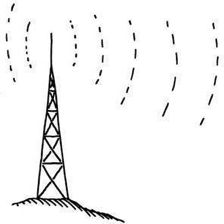 The debate over the value of music and those who make it rages on… While Radiohead famously tested the extent to which fans would value digital music via their 2007 pay-what-you-want In Rainbows release and Jack White recently took to eBay, allowing the free market to decide the price of limited vinyl, Godfather director/wine baron Francis Ford Coppola isn’t looking to our current predicament to envision a future film/music business model, or lack thereof. Speaking to The 99 Percent (via Kottke), Coppola opined on the state of art “only a few hundred years” ago, when “artists had a patron, either the leader of the state or the duke of Weimar or somewhere, or the church, the pope. Or they had another job.” As with many piracy debates, notorious Napster foe Lars Ulrich’s band were used as a reference point:
The debate over the value of music and those who make it rages on… While Radiohead famously tested the extent to which fans would value digital music via their 2007 pay-what-you-want In Rainbows release and Jack White recently took to eBay, allowing the free market to decide the price of limited vinyl, Godfather director/wine baron Francis Ford Coppola isn’t looking to our current predicament to envision a future film/music business model, or lack thereof. Speaking to The 99 Percent (via Kottke), Coppola opined on the state of art “only a few hundred years” ago, when “artists had a patron, either the leader of the state or the duke of Weimar or somewhere, or the church, the pope. Or they had another job.” As with many piracy debates, notorious Napster foe Lars Ulrich’s band were used as a reference point:
This idea of Metallica or some rock n’ roll singer being rich, that’s not necessarily going to happen anymore. Because, as we enter into a new age, maybe art will be free. Maybe the students are right. They should be able to download music and movies. I’m going to be shot for saying this. But who said art has to cost money? And therefore, who says artists have to make money?
In the old days, 200 years ago, if you were a composer, the only way you could make money was to travel with the orchestra and be the conductor, because then you’d be paid as a musician. There was no recording. There were no record royalties. So I would say, “Try to disconnect the idea of cinema with the idea of making a living and money.” Because there are ways around it.
That’s a pretty precarious stance, especially coming from someone of Coppola’s wealth and stature, but he isn’t the only iconic director to defend piracy of late. Last fall, French film pioneer Jean-Luc Godard contributed to the criminal defense fund of a man convicted of downloading files illegally, boldly declaring: “There is no such thing as intellectual property. Copyright really isn’t feasible. An author has no rights. I have no rights. I have only duties.”
